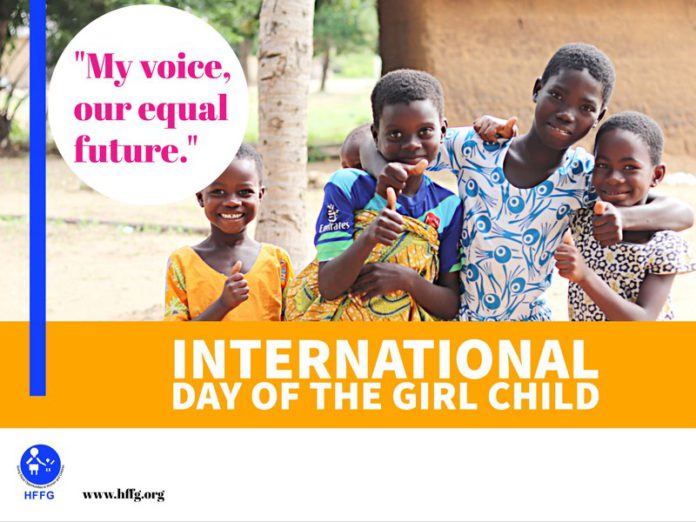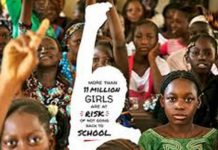
As we join the rest of the world in celebrating the 2020 International Girl Day, on the theme: “My voice, our equal future”, Hope For Future Generations calls on all key stakeholders especially the government to facilitate the removal of structural barriers such as gender inequality, gender-based violence that make girls/women vulnerable.
Again, to reform norms that shun discussion of sexuality and reproduction and norms that oppose the provision of sexual reproductive health rights and services to adolescents.
Young people between the ages 10 and 24 who make up a significant part (29.3%) of Ghana’s population.
They undergo psychosocial and physical development that have social, economic and health implications, including HIV and AIDS, sexually transmitted infections (STIs), unintended pregnancies, gender-based violence (GBV) and gender inequality.
These still pose serious risks to the well-being of young people in Ghana with the girl child carrying the lion’s share.
It is estimated that three in four new HIV infections among adolescents in sub-Saharan Africa are girls while young women between the ages 15 and 24 years are twice likely to get HIV (Ghana AIDS Commission SP, 2020-2024).
Each day, about 160 young women aged 15-24 become infected with HIV in the West African Sub-Region (UNAIDS Data, 2019).
In Ghana, new infections among the youth (15-24) accounts for 28% and 15% for (0-14) according to the 2019 HIV Sentinel Survey. Of the 28%, about 79% are females.
Low access to adolescent’s girls to safe and improved Sexual Reproductive Health Right (SRHR) and services is also of great concern.
ALSO READ:
Teenage pregnancy among adolescent girls is on the rise; pregnancy among 15 to 19 years old in 2017 was 14% according to the Maternal Health Survey.
Evidence shows that cultural practices such as Child, early and forced marriage, gender-based violence, poverty, lack of education among others are contributing factors making females disproportionately affected by HIV, STIs and teenage pregnancy.
On the other hand, research affirms that SRHR for in-school and out school has a positive impact on adolescents including girls as follows; Delayed initiation of sexual intercourse, decreased frequency of sexual intercourse, decreased number of sexual partners, reduced risk-taking, increased use of condoms and increased use of contraception.

